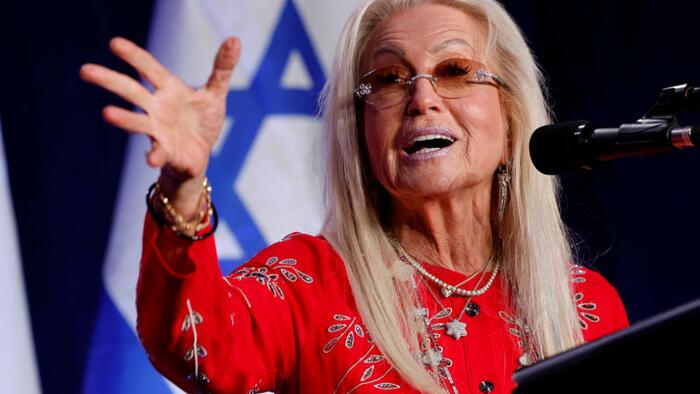A new Super PAC named “MAGA Kentucky” aims to challenge Republican Congressman Thomas Massie in the upcoming primaries, heavily funded by three billionaires with strong ties to Israel. The PAC launched in June 2025, shortly after President Donald Trump expressed displeasure with Massie’s stance on U.S. involvement in Israel’s conflicts, particularly regarding its military actions against Iran.
According to filings with the Federal Election Commission, this Super PAC has raised significant funds from wealthy donors, including $1 million from hedge fund manager Paul Singer of New York, $250,000 from Florida’s John Paulson, and $750,000 from the Preserve America Super PAC, primarily funded by Nevada’s Miriam Adelson. These donors are known for their support of pro-Israel initiatives and have been influential in U.S. political funding.
Massie has been a vocal critic of U.S. foreign aid to Israel and has opposed several military interventions in the Middle East. His position has made him a controversial figure within the Republican Party, particularly among its pro-Israel factions. Trump assigned key political operatives, Tony Fabrizio and Chris LaCivita, to oversee the new PAC, which LaCivita stated will spend “whatever it takes” to secure Massie’s defeat.
Funding and Strategy of MAGA Kentucky
The PAC’s funding structure highlights a disconnect between its branding and its financial backers. The name “MAGA Kentucky” suggests local roots, but its primary contributors are from outside the state, with motivations linked to foreign policy rather than traditional Republican values. Massie has responded to the PAC’s attacks, asserting that the funding comes from billionaires who oppose his views on foreign aid and military involvement in conflicts that do not directly concern the U.S.
The PAC has already started running negative advertisements that mischaracterize Massie’s voting record, accusing him of siding with Iran and opposing key legislative efforts. Massie’s critics within the party have intensified their campaign, suggesting he is out of touch with Republican priorities. His opponents have used social media to amplify their messages, including an advertisement that states, “Massie sided with Democrats and the Ayatollah.”
The Super PAC’s strategy includes spreading misinformation about Massie’s legislative history, particularly his votes against aid to Israel. He has also taken a stand against legislation such as the Antisemitism Awareness Act, which critics argue seeks to stifle free speech regarding Israel. Massie has introduced the Dual Loyalty Disclosure Act, which mandates that candidates disclose any citizenships they hold outside the U.S., a move that has drawn accusations of antisemitism from some advocacy groups.
Massie’s Political Landscape and Support
First elected to Congress in 2012, Massie has cultivated a loyal following among libertarian and conservative circles, with many viewing him as the successor to the late Ron Paul. His commitment to fiscal responsibility and a non-interventionist foreign policy has resonated with a segment of voters who feel alienated by more mainstream Republican policies. Massie has also been active in the push for transparency regarding investigations related to high-profile cases, such as those involving Jeffrey Epstein.
Recent developments have shown Massie gaining unexpected support in response to the PAC’s efforts against him. Many have publicly stated their intent to contribute to his campaign in light of the negative advertising, suggesting that the attempt to undermine him may backfire. As political tensions grow within the party, Massie’s stance on foreign aid and military intervention continues to delineate a clear line between traditional Republican ideals and a more libertarian approach.
The emergence of PACs like MAGA Kentucky reflects a broader trend in U.S. politics, where significant financial support from a select few can dramatically influence local races. As the political landscape evolves, the implications of this funding model will likely continue to shape the dynamics of upcoming elections.
In the meantime, Massie remains focused on his legislative goals, emphasizing the importance of accountability and transparency in government actions. As the primaries approach, the battle for Kentucky’s political future is set to become increasingly contentious, with significant ramifications for both Massie and the broader Republican Party.
